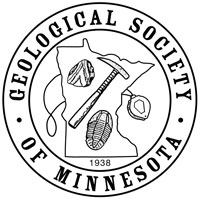Spring Banquet - Distribution of Ancient Carbon in Groundwater and Soil Gas from Degradation of Petroleum near the Red Hill Bulk Fuel Storage Facility, Oʻahu, Hawaiʻi [1]
Seminar Lab Date:
Seminar Lab presenter:
Seminar Lab Subject:
Seminar Lab Location :
2725 University Ave SE, Minneapolis, MN 55414
Dinner 5-7 pm. Lecture at 7 pm.
Seminar Lab Details:
The final meeting of the Geological Society of Minnesota for 2024-2025 is the Spring Banquet at U Garden Restaurant (http://www.ugardenrestaurant.com/ [3]), 2725 University Ave SE, Minneapolis, MN 55414, (612) 378-1255, near the East Bank U of MN campus. This is the same location as the Fall Banquet held in September, 2024. The restaurant is on the north side of University Ave SE, east of 27th Ave SE. Map [4] There is a parking lot behind the restaurant.
The banquet starts at 5:00 PM. No reservation or registration is needed. We recommend the buffet, which is priced at $19.95 + tax & tip. Hot tea and other beverages (except water) are extra. Ordering from the menu at the posted price is also an option. To make payment easy, we encourage everyone to plan to pay using cash or credit card. The restaurant does not accept checks.
You may come for just the lecture, skipping the meal if you wish; however we encourage you to enjoy the meal also, as the restaurant appreciates our business in return for hosting this event.
During the banquet, the Video Library will be open for returns and rentals as usual.
Following the banquet, around 7 PM, will be our final lecture of 20224-2025. As with all GSM lectures, this lecture is free and open to the public.
Abstract: The Red Hill Bulk Fuel Storage Facility (facility) on Oʻahu, Hawaiʻi has supported military operations in the Pacific since it was completed in 1943. The facility was designed to store up to 250 million gallons of fuel in a series of 20 steel-lined tanks that were encased in concrete and built into cavities mined out of Red Hill. The facility overlies the aquifer that is the main source of water for Honolulu County and the military. In November 2021 a fuel release at the facility resulted in residential water contamination of Navy water system users. In March 2022, a decision was made to permanently shut down and defuel the Facility. Understanding the fate of fuel from past spills still present in the subsurface is critical for ensuring a safe public water supply. This study used carbon-14 analyses to distinguish fuel-derived carbon from background carbon in groundwater and soil gas, along with other biodegradation indicators, to address two goals: (1) determine the extent and migration direction of groundwater affected by residual fuel below the facility and (2) determine if residual fuel locations in the subsurface could be identified by analyzing soil gas at the surface.
Biography: Jared Trost is a hydrologist with more than 20 years experience leading, managing, and communicating about environmental research topics ranging from plant ecology to groundwater quality. Current areas of interest include field studies and modeling approaches to understand the influences of climate, land cover, contaminants, and unsaturated zone properties on the quality and quantity of groundwater. He enjoys helping others succeed at scientific (and other) endeavors. When not working, his happy place is spending time with family, especially in places that lack electricity.
